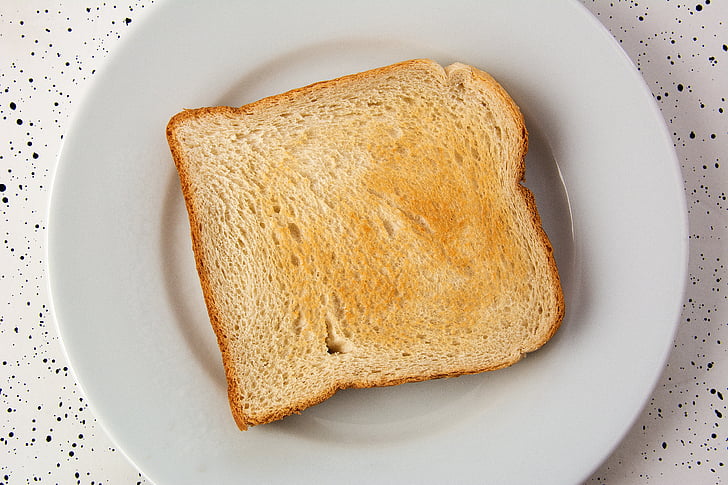Health Benefits of White Bread Toast
What are the health benefits of toast?
White toast, made from white bread, has fewer health benefits compared to whole grain or whole wheat bread. However, it can still provide some nutritional value and may be beneficial in certain situations. Here are some potential health benefits of white toast:
1. Quick Source of Energy:
- Carbohydrates: White toast is primarily composed of refined carbohydrates, which provide a quick and easily digestible source of energy. This can be useful for individuals needing an immediate energy boost, such as athletes or those recovering from illness.
2. Easily Digestible:
- Mild on the Stomach: White toast is easier to digest compared to whole grain bread, making it a suitable option for people with digestive issues, such as those recovering from gastrointestinal distress, or with conditions like irritable bowel syndrome (IBS).
3. Fortified Nutrients:
- Added Vitamins and Minerals: Many white breads are fortified with essential nutrients like iron, folic acid, and B vitamins (such as niacin, thiamin, and riboflavin). These added nutrients can help prevent deficiencies, especially in populations with limited access to diverse food sources.
4. Low Fiber Content:
- Suitable for Low-Fiber Diets: For individuals who need to follow a low-fiber diet, such as those with certain digestive conditions or during recovery from specific surgeries, white toast can be a suitable option because it has lower fiber content than whole grain bread.
5. Versatility:
- Easy to Combine with Nutritious Toppings: White toast can be paired with various nutritious toppings to enhance its health benefits. For example, topping it with avocado, nut butter, or eggs can provide healthy fats, protein, and additional vitamins and minerals.
6. Comfort Food:
- Palatability: White toast is often more palatable to children and those with sensitive palates, making it an accessible way to provide a source of carbohydrates.
7. Hydration Support:
- Absorbing Liquids: White toast can help absorb liquids and provide a bland food option that may be helpful for managing conditions like nausea or diarrhea.
Considerations for Consuming White Toast:
- Moderation: While white toast can be part of a balanced diet, it is important to consume it in moderation and alongside a variety of other foods to ensure a well-rounded nutrient intake.
- Whole Grain Alternatives: Whenever possible, opt for whole grain or whole wheat bread, which offer more fiber, vitamins, and minerals compared to white bread.
- Nutritious Toppings: Enhance the nutritional value of white toast by pairing it with healthy toppings like fresh fruits, vegetables, lean proteins, and healthy fats.
While white toast may not be as nutrient-dense as whole grain options, it can still offer some health benefits, particularly in situations where easy digestion and quick energy are important. Balancing its consumption with other nutrient-rich foods can help ensure a healthier diet overall.
What are the health risks of toast?
While white bread toast can offer some benefits, it also comes with several potential health risks, particularly when consumed frequently or in large quantities. Here are some health risks associated with white bread toast:
1. High Glycemic Index:
- Blood Sugar Spikes: White bread has a high glycemic index, which means it can cause rapid spikes in blood sugar levels. This is particularly concerning for individuals with diabetes or insulin resistance, as it can lead to poor blood sugar control.
2. Low Nutritional Value:
- Refined Carbohydrates: White bread is made from refined flour, which has been stripped of most of its fiber, vitamins, and minerals during processing. This results in a lower overall nutrient content compared to whole grain bread.
3. Weight Gain and Obesity:
- Caloric Density: Consuming refined carbohydrates like white bread can contribute to weight gain and obesity, especially when not balanced with physical activity and other nutrient-dense foods. Refined carbs can also increase appetite and lead to overeating.
4. Increased Risk of Chronic Diseases:
- Heart Disease: High intake of refined carbohydrates is linked to an increased risk of heart disease. Diets high in refined grains are associated with higher levels of triglycerides, LDL (bad) cholesterol, and lower levels of HDL (good) cholesterol.
- Type 2 Diabetes: Regular consumption of high glycemic index foods like white bread can increase the risk of developing type 2 diabetes.
5. Digestive Issues:
- Low Fiber: The low fiber content in white bread can lead to digestive problems such as constipation. Fiber is important for maintaining healthy bowel movements and supporting overall digestive health.
6. Potential for Nutrient Deficiencies:
- Missing Nutrients: Relying too heavily on white bread can lead to missing out on important nutrients that are present in whole grains, such as dietary fiber, B vitamins, iron, magnesium, and zinc.
7. Additives and Preservatives:
- Artificial Ingredients: Some commercially produced white bread contains additives and preservatives to extend shelf life and improve texture. These ingredients can have negative health effects for some individuals, particularly those with sensitivities or allergies.
8. Risk of Overconsumption:
- Palatability: White bread is often more palatable and easier to overeat compared to whole grain breads, which can contribute to excessive calorie intake and associated health risks.
Tips to Mitigate Health Risks:
- Moderation: Consume white bread toast in moderation and balance it with other nutrient-dense foods.
- Whole Grain Alternatives: Opt for whole grain or whole wheat bread whenever possible, as these options provide more fiber, vitamins, and minerals.
- Healthy Toppings: Choose nutritious toppings for your toast, such as avocado, nut butter, or fresh vegetables, to enhance its overall nutritional value.
- Read Labels: Check ingredient labels to avoid bread with excessive additives, preservatives, and added sugars.
- Balance with Other Foods: Ensure your diet includes a variety of whole grains, fruits, vegetables, lean proteins, and healthy fats to meet your nutritional needs.
In summary, while white bread toast can be convenient and enjoyable, it is important to be aware of its potential health risks. Making mindful choices and incorporating a variety of nutrient-rich foods into your diet can help mitigate these risks.




